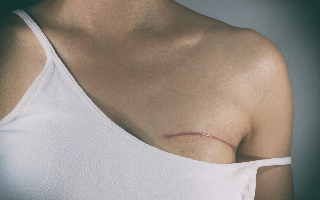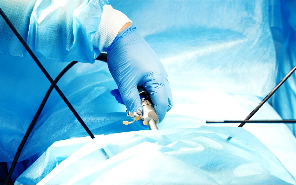

Injury to Bowel & Pancreas During Surgery
- Home >
- Case Studies >
- Injury to Bowel & Pancreas During Surgery
Background
Mrs R was advised to undergo endoscopic retrograde cholangiopancreatography (“ERCP”) to investigate her Type 3 Sphincter of Oddi Dysfunction.
In the course of the ERCP procedure, Mrs R’s bile and pancreatic duct were perforated, requiring multiple further admissions to hospital and numerous surgical procedures. She developed obstructive uropathy with impaired right renal function, managed with repeated ureteric stenting.
Reconstructive surgery was discussed, but it was agreed that the decision on whether or not to proceed with such major surgery should be deferred for at least a year, given all that Mrs R had been through. In the interim, she underwent insertion of a titanium Memokath stent, which worked well.
Her pancreatitis resolved and she was discharged, preferring to avoid the risks associated with reconstruction surgery. Unfortunately, the titanium stent was later blocked and was replaced with a temporary plastic stent, which remained in place until further surgery inserted another Memokath stent.
Given the problems Mrs R suffered, she remains content for her condition to be managed by stenting the right ureter. However, even if reconstruction surgery is not undertaken in future, the function of her right kidney is dependent on the right ureter remaining stented for the rest of her life. Memokath stents offer the most appropriate form of stenting, but require replacing on average once every 3 years. She will also require indefinite regular monitoring of the right kidney.
Due to the risk of serious complications arising from any problems with the stent, Mrs R has had to limit her travel abroad to only countries providing first-world medical services.
This surgical negligence claim was pursued on the basis that the ERCP was not indicated based on Mrs R’s symptoms and she was inadequately counselled as to the risks and reasonable alternatives to ERCP. Had she been given adequate advice, she would not have agreed to undergo the procedure and would therefore have avoided injury.
Settlement
In the Protocol Letter of Response, the Defendant admitted breach of duty and acknowledged that Mrs R would not have undergone ERCP, which would have allowed her to avoid the complications she suffered. Despite service of quantum evidence, the Defendants failed to make any offer in settlement, and therefore proceedings were issued.
Eventually, the claim was settled for £100,000 shortly before the CCMC, with £50,000 representing special damages.
This case was led by Amanda Smith.
NOTE: While our case studies are designed to give an indication of the outcomes that can be achieved in these circumstances, the compensation awarded in individual cases can vary significantly due to a range of factors, including effects on life expectancy, the severity of the medical negligence that took place, and the financial impact.
Featured surgical negligence case studies
Featured surgical negligence insights






